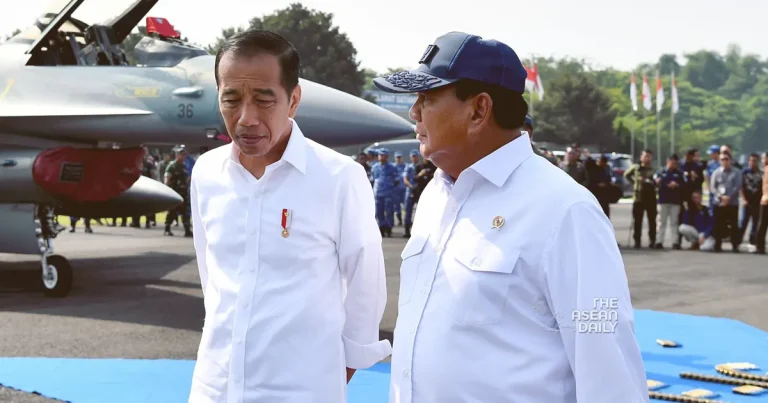19-8-2024 (JAKARTA) Outgoing Indonesian President Joko Widodo, widely known as Jokowi, has orchestrated a cabinet reshuffle that sees key positions filled by individuals closely aligned with his successor, President-elect Prabowo Subianto. The shake-up, announced on Monday, 19 August, comes just two months before Jokowi is set to step down from office in October.
The reshuffle appears to be a strategic move aimed at ensuring a smooth transition of power and aligning the current administration with the incoming government’s priorities. Most notably, the crucial portfolios of energy and investment have been reassigned to figures who played pivotal roles in Prabowo’s successful presidential campaign earlier this year.
Bahlil Lahadalia, who previously held the position of investment minister, has been appointed as the new energy minister. In his first statement following the appointment, Lahadalia outlined his immediate priorities, which include developing incentives to revitalise dormant energy wells and addressing the decline in Indonesia’s crude oil production. When questioned about the longevity of his role under the new administration, Lahadalia diplomatically deferred to the incoming president’s discretion.
The investment ministry will now be helmed by Rosan Roeslani, who transitions from his role as Indonesia’s Ambassador to the United States. Both Lahadalia and Roeslani were active supporters of Prabowo during his presidential bid, underscoring the political calculus behind these appointments.
In a move that directly supports one of Prabowo’s flagship campaign promises, Jokowi has established a new National Nutrition Agency. This body will be led by Dadan Hindayana, a professor from Bogor Agricultural Ministry and a member of Prabowo’s campaign team. The agency’s primary mandate will be to implement the “Free Nutritious Meals” programme, an ambitious initiative set to provide free meals to millions of students across the country. Hindayana has announced that this programme is slated to commence on 2 January of the coming year.
Further cementing the link between the outgoing and incoming administrations, Hasan Nasbi, who served as a spokesperson for Prabowo, has been appointed to head the presidential communications body.
Ari Dwipayana, an official from the presidential palace, explained the rationale behind these appointments, stating they are “needed to prepare and support the government transition so it works well, smooth, and effectively.”
This cabinet reshuffle represents a noteworthy departure from typical lame-duck periods in democratic transitions. By appointing individuals closely associated with the president-elect, Jokowi appears to be prioritising policy continuity and operational stability over traditional political boundaries.
The move has sparked discussions among political analysts about the implications for Indonesia’s democratic processes and the balance of power during transitional periods. Some view it as a pragmatic approach to governance, while others raise concerns about the potential blurring of lines between administrations.




